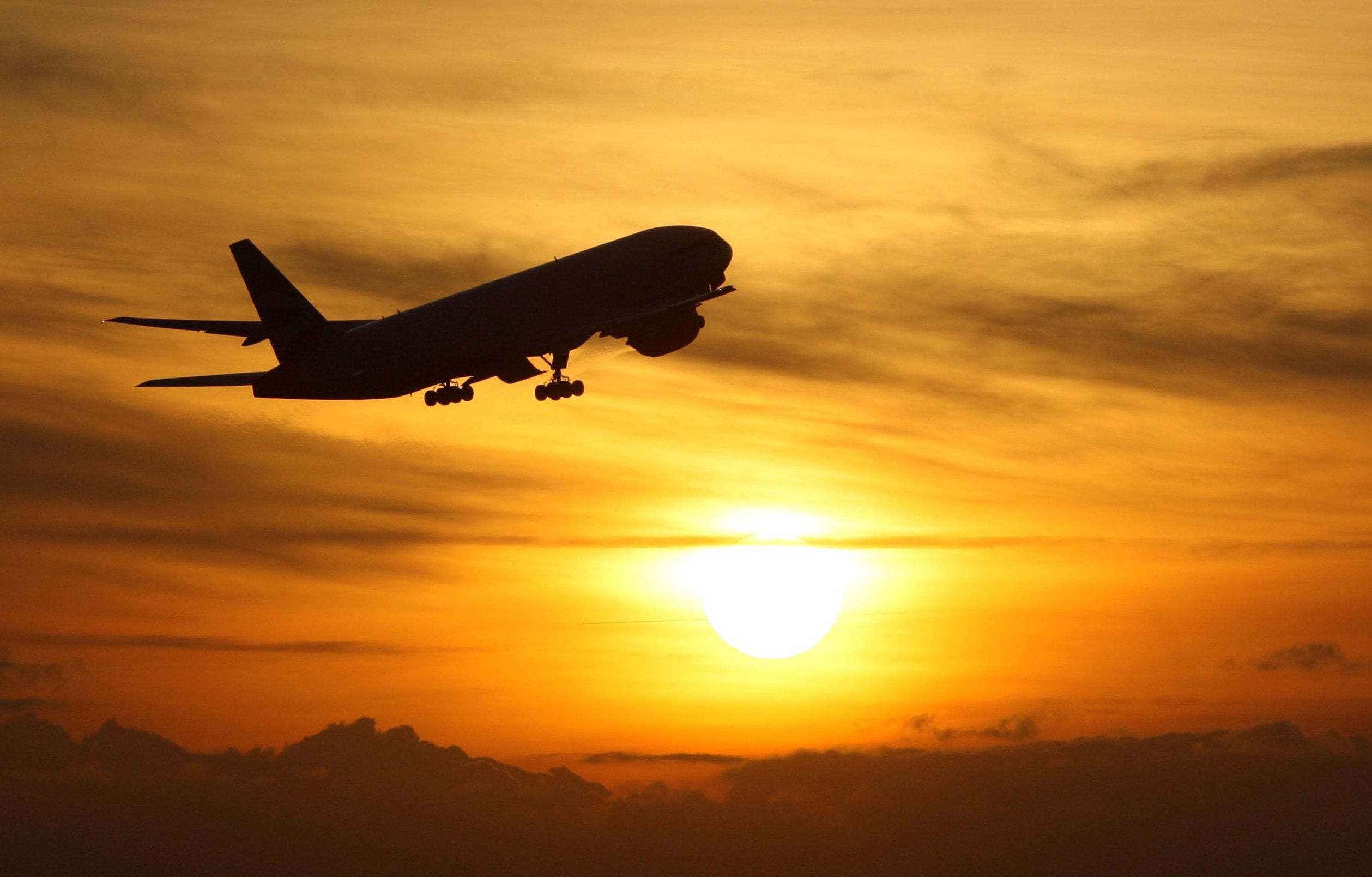Jet fuel produced from food waste could dramatically cut emissions, study finds
US National Renewable Energy Laboratory researchers find sustainable fuel could reduce greenhouse gas emissions up to 165 per cent

Your support helps us to tell the story
From reproductive rights to climate change to Big Tech, The Independent is on the ground when the story is developing. Whether it's investigating the financials of Elon Musk's pro-Trump PAC or producing our latest documentary, 'The A Word', which shines a light on the American women fighting for reproductive rights, we know how important it is to parse out the facts from the messaging.
At such a critical moment in US history, we need reporters on the ground. Your donation allows us to keep sending journalists to speak to both sides of the story.
The Independent is trusted by Americans across the entire political spectrum. And unlike many other quality news outlets, we choose not to lock Americans out of our reporting and analysis with paywalls. We believe quality journalism should be available to everyone, paid for by those who can afford it.
Your support makes all the difference.Jet fuel produced from food waste could dramatically cut the aviation industry’s greenhouse gas emissions, according to new research.
Discarded food scraps, grease and fats and manure converted into paraffin, which is used in aviation fuel, could pave the way for a massive reduction on the impact of flying for the planet.
Scientists at the US National Renewable Energy Laboratory said sustainable aviation fuel could reduce greenhouse gas emissions up to 165 per cent compared with conventional fossil jet fuels, reducing the amount of waste that ends up in landfill while also cutting the output of soot from plane engines.
The study set out to look at how volatile fatty acids (VFAs) from food waste could be converted into a useful product.
Due to its water content, wet kitchen waste and sludge has traditionally been converted to methane. But the researchers sought to find another use for it by recovering molecules from food waste undergoing fermentation and converting the VFAs into paraffin, a combustible hydrocarbon used in aviation fuel.
Read more:
After altering the paraffin to ensure it would work with a jet engine, researchers were able to increase the proportion of the eco-friendly fuel blended with conventional fossil fuel to 70 per cent.
They also managed to achieve a 34 per cent reduction in soot compared with conventional jet fuels. Reducing the number of soot particles emitted by aircraft engines decreases the number of ice crystals produced, which in turn reduces the climate impact of contrails.
However scientists have previously warned that even a 90 per cent reduction in soot emissions would likely not be enough to limit the climate impact of contrails to 2006 levels.
Experts say contrails change global cloud levels, creating an imbalance in the Earth's radiation budget – or 'radiative forcing' – that results in warming of the planet.
The authors of the new report said the method of using food waste had the potential to replace more than 20 per cent of current jet fuel consumption in the US, where more than 21 billion gallons are consumed annually – a figure that is expected to double by 2050.
Using discarded waste, which is both low-cost and widely available, also sidesteps the environmental impact of biofuels which require plants to be grown on vast areas of land.
The research, published in the journal Proceedings of the National Academy of Sciences, comes as the government on Tuesday launches the Jet Zero Council, which aims to deliver zero-emission transatlantic flight within a generation.
The project offers £15m for companies exploring new technologies to convert household rubbish, waste wood and excess electricity into sustainable aviation fuel.
Grant Shapps, the transport secretary, said: “As the aviation sector emerges out of the pandemic and looks towards recovery over the coming months, we must put our environmental commitments at the centre of everything we do – so not only do we build back better, we also build back greener.
“That’s why we’re stepping up our work on the council, recruiting new members and launching pioneering efforts to ensure that we continue to lead the world by example and deliver on our ambitious net-zero targets.”
Progress is already being made in the field of sustainable aviation. The first flight of a hydrogen-electric passenger aircraft took place at Cranfield University in September, and easyJet hopes to operate its first fully electric commercial flight by 2030 after partnering with US firm Wright Electric.
Join our commenting forum
Join thought-provoking conversations, follow other Independent readers and see their replies
Comments